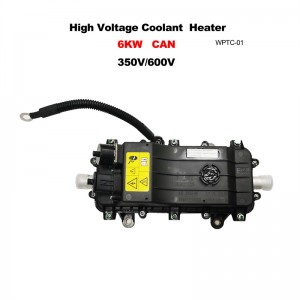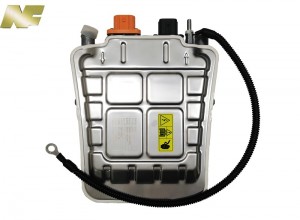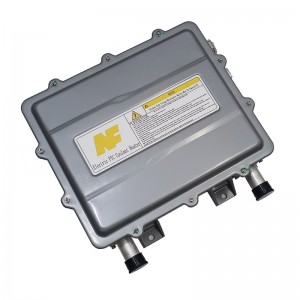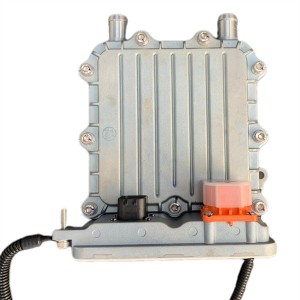NF 30KW Battery Cabin Coolant Heater High Voltage Coolant Heater 600V 24V PTC Coolant Heater For Electric Bus/Truck
Description
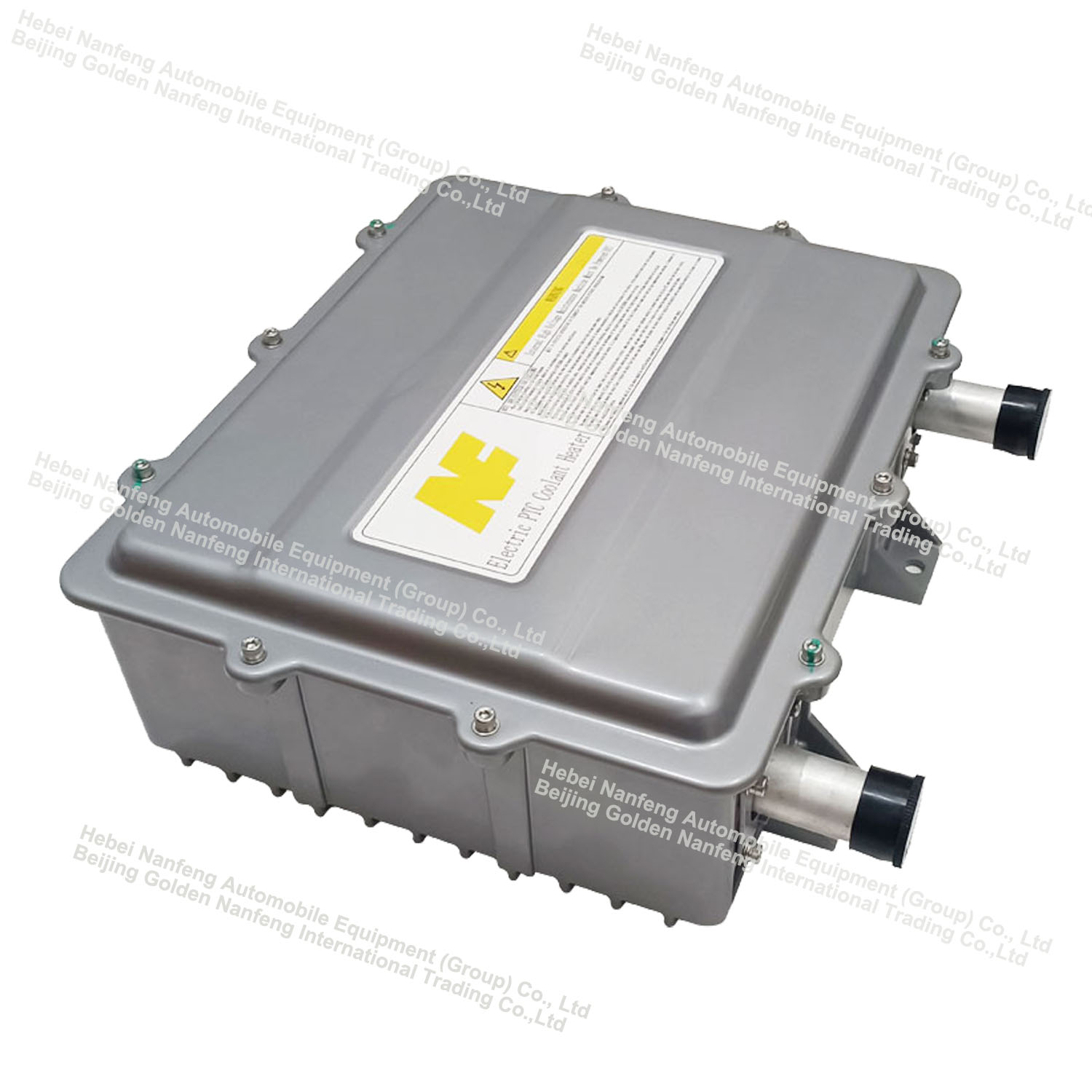
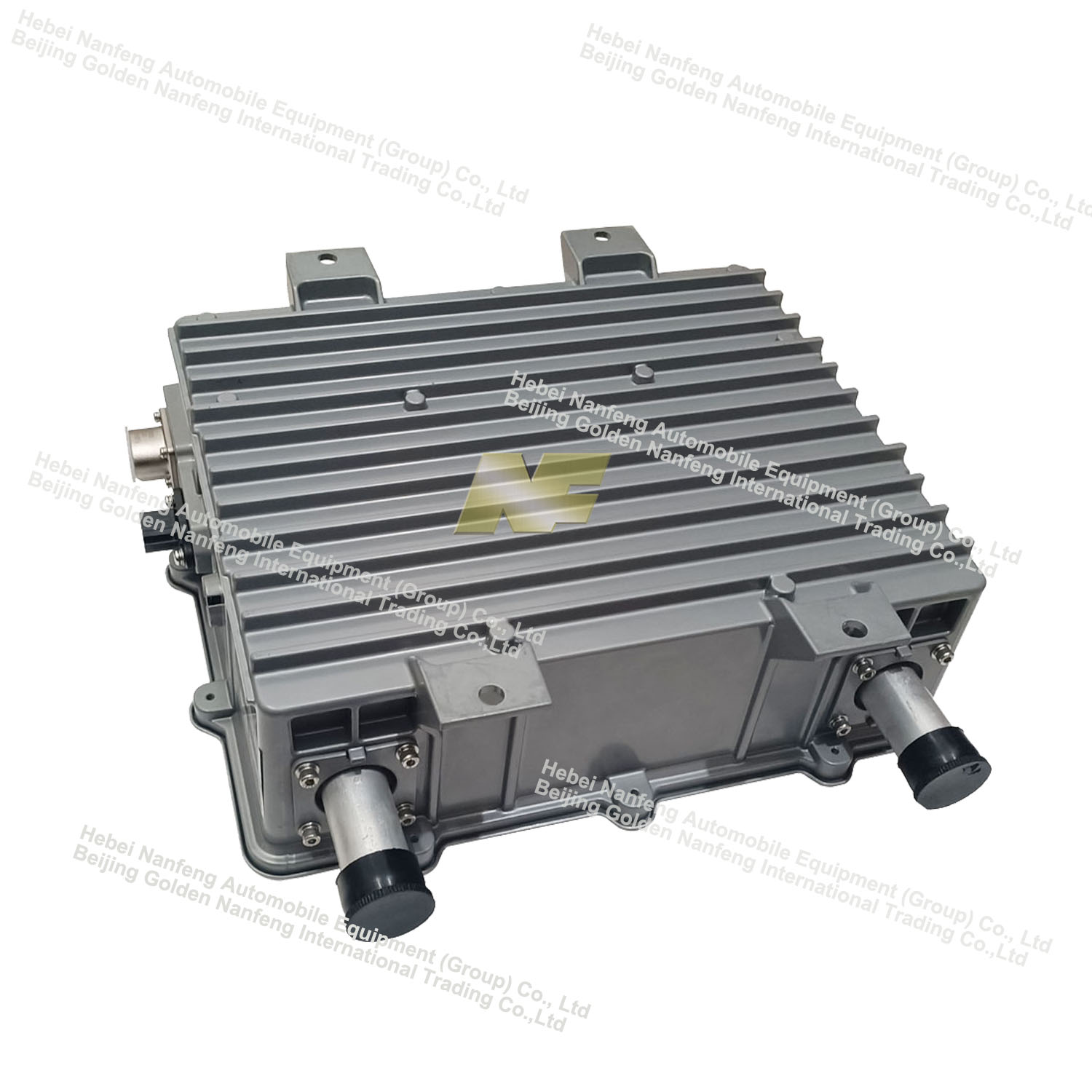
Our high-voltage coolant heaters can be used for improving battery energy performance in EVs and HEVs. In addition it allows comfortable cabin temperatures to be generated in a short time enabling a better driving and passenger experience. With high thermal power density and fast response time due to their low thermal mass, these heaters also extend pure electric driving range as they use less power from the battery.
As the world moves towards a cleaner, greener future, battery electric vehicles (BEVs) have become an increasingly popular choice for eco-conscious consumers. In addition to making a positive contribution to the environment, pure electric vehicles present a unique set of challenges, especially when it comes to controlling the temperature inside the vehicle. This is where the revolutionary HVCH system (short for High Pressure Cooled Heater) comes into play. In this blog, we will explore the importance of HVCH and how it can enhance the overall driving experience of electric vehicles.
Learn about battery electric PTC heaters:
Electric vehicles are primarily powered by batteries and do not require a traditional internal combustion engine. However, this means that the vehicle lacks the heat by-products typical of an internal combustion engine, making it necessary to find alternative ways to heat the cabin in cold climates. This is where battery electric heaters (BEH) come into play.
The BEH uses electrical energy from the vehicle's battery to generate heat, providing passengers with a comfortable and welcoming environment regardless of the outside temperature. It ensures efficient energy consumption and thus contributes to the overall range of the vehicle. As technology has advanced, BEHs have become extremely efficient, utilizing advanced heating elements to provide optimum performance while minimizing energy consumption.
Introduction to HVCH system:
The latest breakthrough in EV heating technology is the HVCH system. Traditionally, vehicle HVAC systems (heating, ventilation, and air conditioning) use engine coolant to regulate temperature. However, since pure electric vehicles lack an engine-driven cooling system, a new solution is required to ensure efficient cabin heating.
HVCH systems integrate heating and cooling, using powerful heat pumps to extract heat from the surrounding environment. By utilizing the principles of electrical energy and heat exchange, HVCH systems provide high-performance climate control. This innovative system not only heats the cabin, but also cools it down on hot days, ensuring an optimal thermal experience.
Advantages of HVCH:
1. Efficient energy use: HVCH optimizes energy consumption by utilizing heat extracted from the environment, reducing reliance on battery power for heating or cooling.
2. Driving range: With the help of BEH and HVCH systems, electric vehicles can save battery energy, thereby increasing driving range.
3. Environmentally friendly: HVCH reduces dependence on non-renewable energy for heating or cooling purposes, contributing to a cleaner, greener environment.
4. Enhanced comfort: The HVCH system provides fast and efficient temperature regulation, ensuring passenger comfort regardless of weather conditions. There is no need to warm up or cool down the vehicle before entering, making the driving experience more convenient and enjoyable.
5. Reduced maintenance: Since the HVCH does not rely on the mechanical components commonly found in traditional HVAC systems, the likelihood of mechanical failure or system problems is significantly reduced. This means fewer maintenance requirements and lower cost of ownership for BEV owners.
The future of HVCH:
As EV adoption continues globally, advancements in HVCH systems will play a vital role in increasing their overall appeal. Manufacturers are continuously investing in research and development to achieve greater energy efficiency and performance, further enhancing the driving experience.
in conclusion:
The HVCH system marks a remarkable advancement in the field of electric vehicle heating technology. Using innovative heat pump technology, it enables efficient energy use, extended driving range, improved passenger comfort and reduced maintenance requirements. As the automotive industry strives to build a more sustainable future, HVCH systems represent an important step forward in providing a seamless and enjoyable driving experience in the era of electric vehicles.
Technical Parameter
| NO. | Product Description | Range | Unit |
| 1 | Power | 30KW@50L/min &40℃ | KW |
| 2 | Flow Resistance | <15 | KPA |
| 3 | Burst Pressure | 1.2 | MPA |
| 4 | Storage Temperature | -40~85 | ℃ |
| 5 | Operating Ambient Temperature | -40~85 | ℃ |
| 6 | Voltage Range (high Voltage) | 600(400~900) | V |
| 7 | Voltage Range (low Voltage) | 24(16-36) | V |
| 8 | Relative Humidity | 5~95% | % |
| 9 | Impulse Current | ≤ 55A (i.e. rated current) | A |
| 10 | Flow | 50L/min | |
| 11 | Leakage Current | 3850VDC/10mA/10s without breakdown, flashover, etc | mA |
| 12 | Insulation Resistance | 1000VDC/1000MΩ/10s | MΩ |
| 13 | Weight | <10 | KG |
| 14 | IP Protection | IP67 | |
| 15 | Dry Burning Resistance (heater) | >1000h | h |
| 16 | Power Regulation | regulation in steps | |
| 17 | Volume | 365*313*123 |
Shipping and Packaging

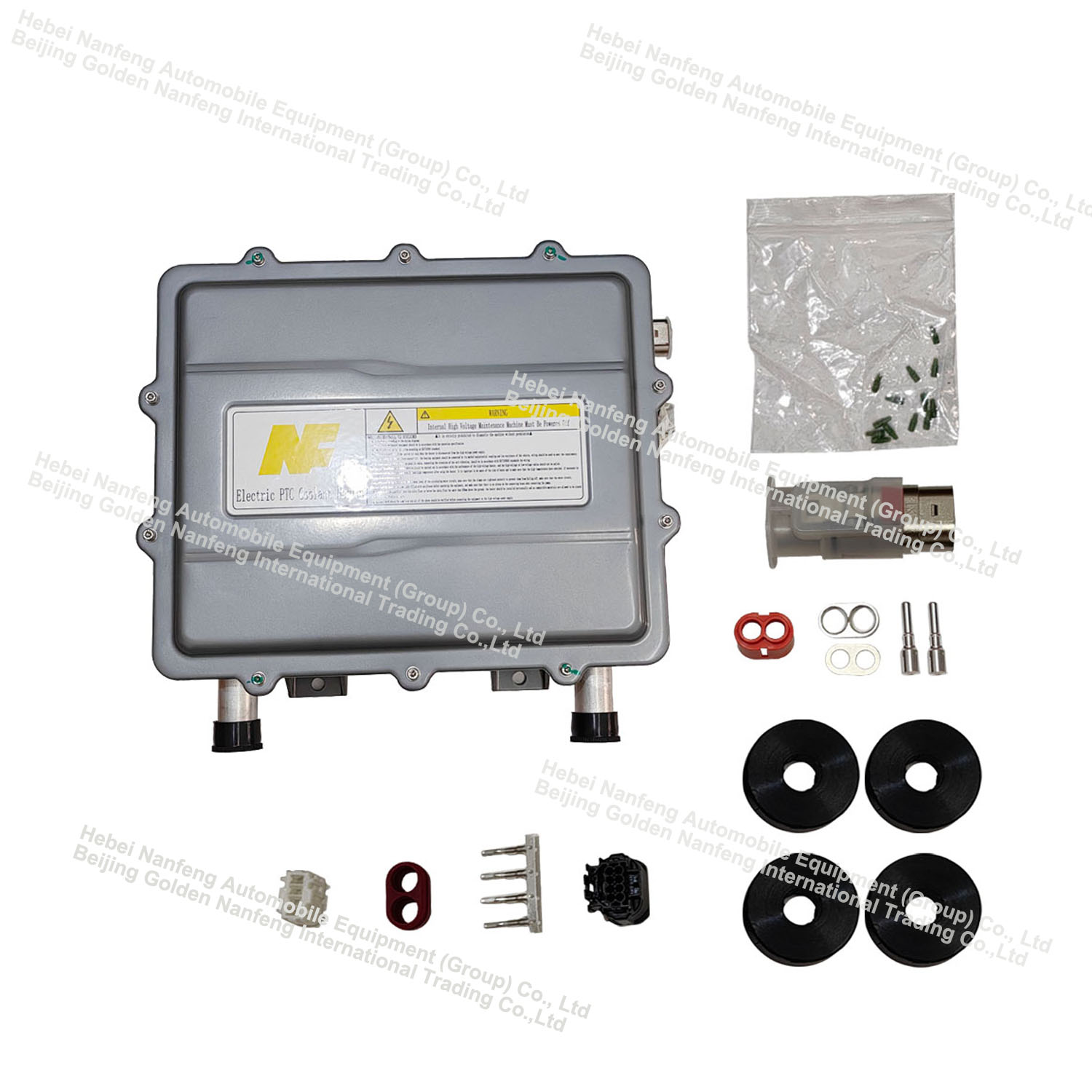
2D, 3D models
Please feel free to contact us for more details, thanks!
Our Company

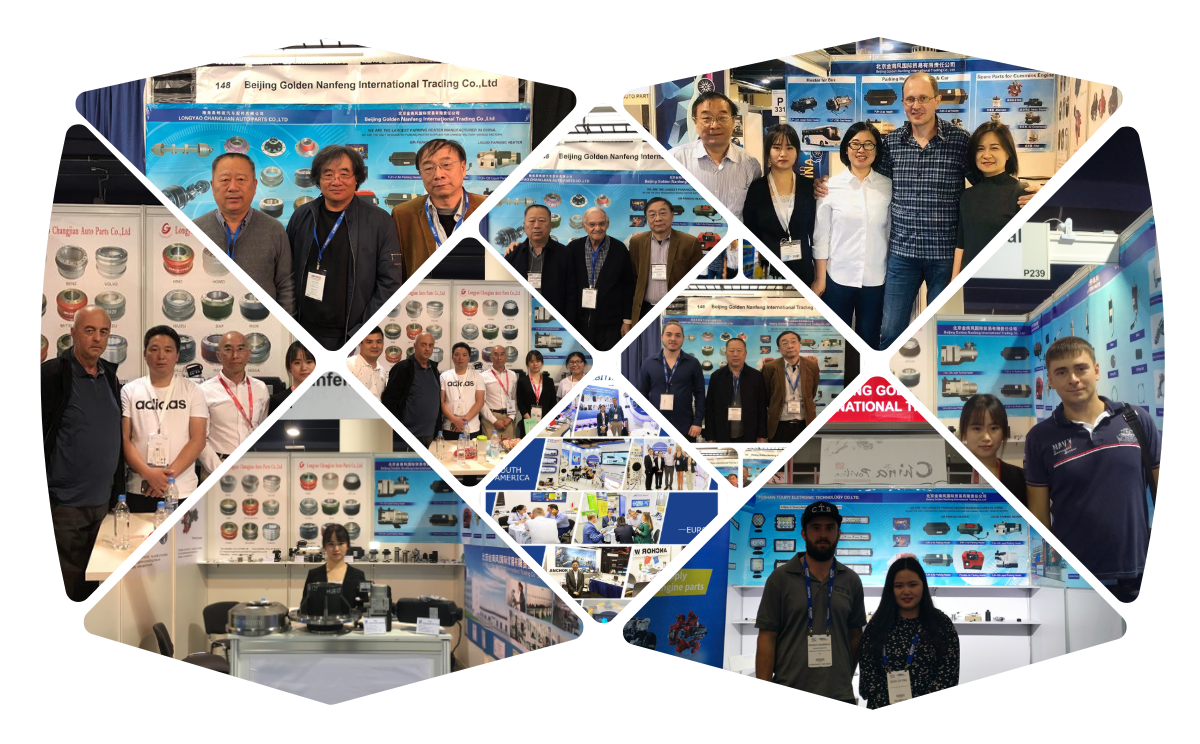
Hebei Nanfeng Automobile Equipment (Group) Co., Ltd is a group company with 5 factories, that specially produce parking heaters, heater parts, air conditioner and electric vehicle parts for more than 30 years. We are the leading auto parts manufacturers in China.
Our factory's production units are equipped with high tech machineries, strict quality,control testing devices and a team of professional technicians and engineers endorsing the quality and authenticity of our products.
In 2006, our company has passed ISO/TS16949:2002 quality management system certification. We also bagged the CE certificate and Emark certificate making us among the only few companies in the world acquiring such high level certifications. Currently being the largest stakeholders in China, we hold a domestic market share of 40% and then we export them around the globe particularly in Asia, Europe and Americas.
Meeting the standards and demands of our customers have always been our top priority. It always encourages our experts to continuously brain storm, innovate, design and manufacture new products, impeccably suitable for the Chinese market and our customers from every nook of the world.
FAQ
Battery electric heaters are an efficient portable heating solution that utilizes battery power to provide warmth in a variety of settings. Despite their increasing popularity, there are often issues surrounding their use. In this article, we have compiled ten frequently asked questions about electric battery heaters and provided detailed answers to help you better understand their features and benefits.
1. What is the working principle of battery electric heater?
Battery electric heaters work by using a heating element to convert the electrical energy of the battery into heat. The heat is then dissipated via a fan or radiant heating technology, effectively warming the surrounding area.
2. What types of batteries are battery electric heaters compatible with?
Most battery electric heaters are designed to work with rechargeable lithium-ion batteries. These batteries have high energy density, longer runtime and faster recharging capabilities, making them ideal for these heaters.
3. How long can the battery of a battery heater last?
Battery life for battery electric heaters varies depending on heat settings, battery capacity and usage patterns. On average, battery electric heaters can provide heat for several hours to a day on a single charge.
4. Can the battery electric heater use ordinary AA or AAA batteries?
No, battery electric heaters require specially designed lithium-ion batteries for optimum performance. Regular AA or AAA batteries do not have the energy needed to effectively power these heaters.
5. Is the battery electric heater safe to use?
Yes, battery electric heaters are generally safe to use. They have built-in safety measures such as overheating protection and automatic shutdown in case of any malfunction or dangerous temperature levels.
6. Are battery electric heaters a cost effective heating solution?
Depending on your heating needs and preferences, battery electric heaters may be cost-effective. They tend to be more energy efficient than traditional propane heaters, but can be more expensive overall due to the need to purchase rechargeable batteries.
7. Can the battery heater be used outdoors?
Yes, battery electric heaters can be used outdoors, especially the weatherproof models. However, it is important to consider heating capacity and battery life to ensure adequate warmth in the open air.
8. What are the advantages of using a battery heater?
Some advantages of battery electric heaters include portability, quiet operation, emission-free heating, and the ability to use them in areas without electrical outlets. They are an excellent choice for camping, emergencies, or spaces where traditional heating methods are not feasible.
9. Are battery heaters suitable for large spaces?
Battery electric heaters are generally designed to provide localized or supplemental heating. They may not be the most efficient option for heating large spaces, as heat distribution may be limited. However, some models offer adjustable airflow or oscillation for enhanced thermal cycling.
10. Can the battery electric heater be used when the power is off?
Yes, battery electric heaters are very useful during a power outage because they rely on the energy stored in the battery. These heaters provide heat and comfort without the need for electrical outlets or generators.
in conclusion:
Battery electric heaters provide a convenient and environmentally friendly way to warm small spaces or provide extra heat in a variety of situations. By addressing these common questions, we hope to give you a better understanding of how battery electric heaters work, their benefits, and limitations, enabling you to make an informed decision when considering this heating solution.








